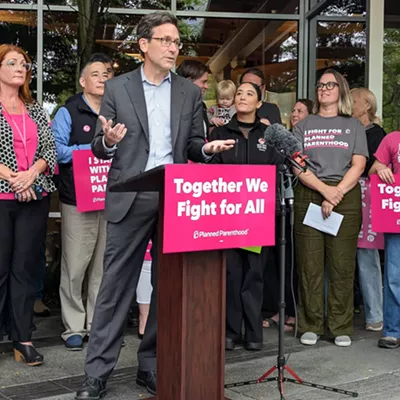As a planet, we're connected like never before. With nearly 3 billion smartphones in use worldwide, even little moments can shoot across humanity almost instantly. Marshall McLuhan's "global village" is no longer a theory.
And the world we are connected to is at once glorious and terrifying; it's no wonder the Oxford Dictionaries' "word of the year" is the emoji that shows the little smiley face laughing and crying at the same time.
Big, shocking events, like the attacks in Paris, can hit us like a sucker punch. But soon enough, we naturally settle on that one particular stage of grief: anger. France launched air strikes on ISIS strongholds; we went after al Qaeda in Afghanistan. Nobody can argue with either.
Yet many want more "boots on the ground." President Obama has, to many, been frustratingly cool — too careful, they say, to defeat ISIS.
Think about Western interventions in the Middle East — natural resource grabs, genuine Good Samaritan acts or simple colonial meddling. The common feature among all have been the unintended consequences.
Lawrence of Arabia led the charge to liberate the Middle East from the Ottoman Empire, but his "success" led to chaos and the resumption of bloody religious infighting. Great Britain, broke and dispirited after World War II, decided to partition India in 1947, creating Pakistan; all hell broke loose, with hundreds of thousands killed and a tense relationship between nuclear powers as its legacy. In 1948, Britain tried to broker a deal for Israel, but ultimately bailed out of negotiations; Israel still became a nation, but Palestinians were left as the orphans of the region, creating a divide that has only grown. In 2003, the United States invaded Iraq to liberate that nation from the tyranny of Saddam Hussein. But once his Baathist party was expunged, Iraq slipped into civil war. Bashar al-Assad is still in power in Syria because the world so recently found out what happens when you eliminate a strong despot you despise.
And that leads us to ISIS, which has found a foothold in the failing states of Syria and Iraq. What does ISIS want? They say they want to rule the Middle East, displacing the Saudis as the true Wahhabis. But getting there seems to include sowing terror everywhere they can.
Global awareness brings enlightenment, too. People should see that Obama and allied leaders are right to temper their anger and consider the unintended consequences that are scattered like roadside bombs across the region. This is war, to be sure. Here's hoping that all our planet's leaders are wise enough to learn from the past as we fight it.♦
























